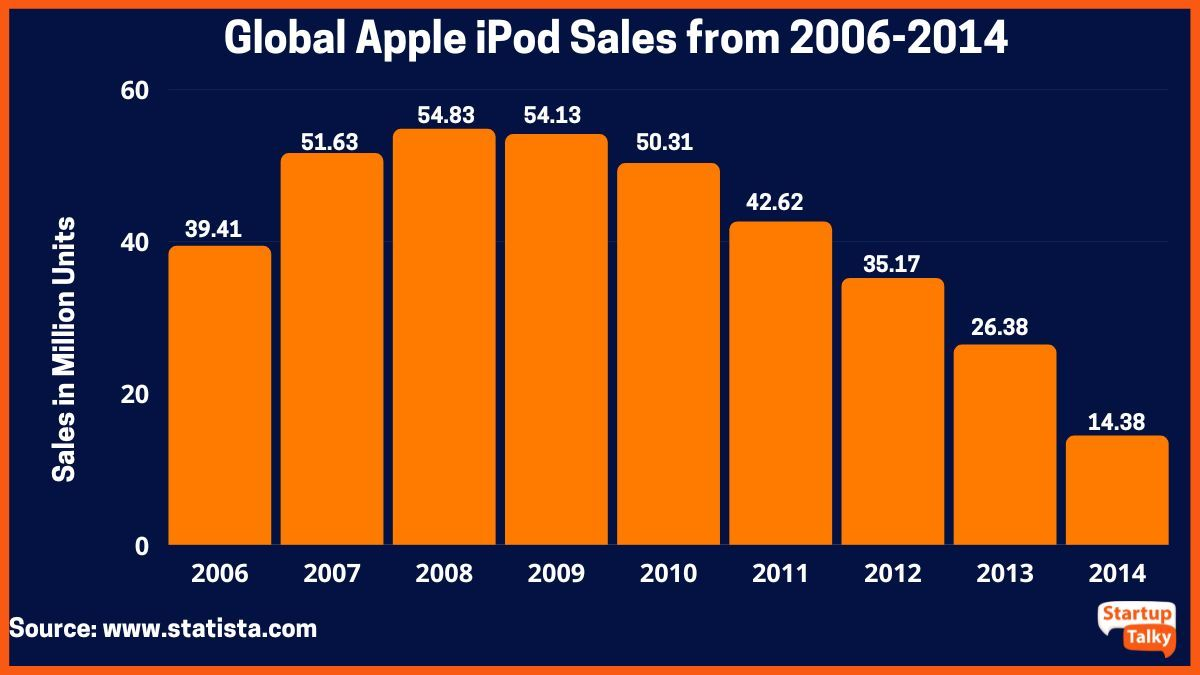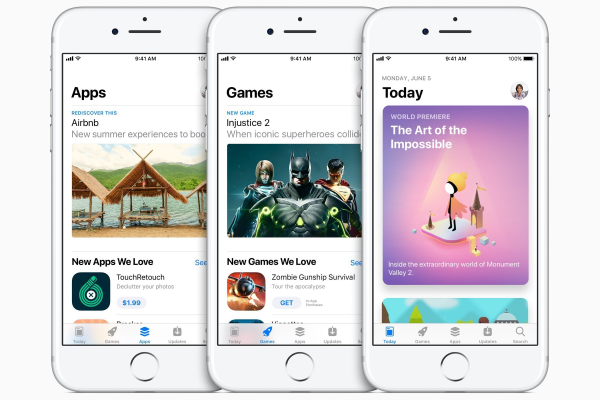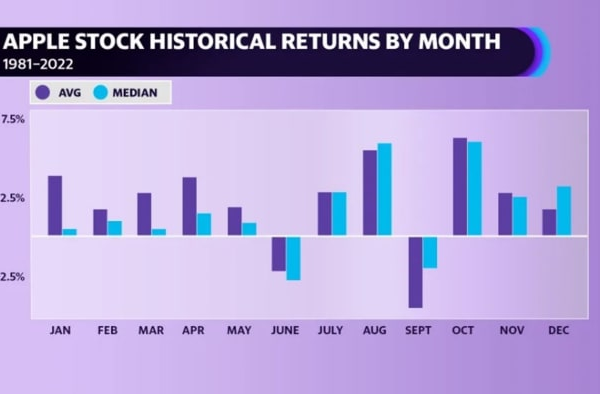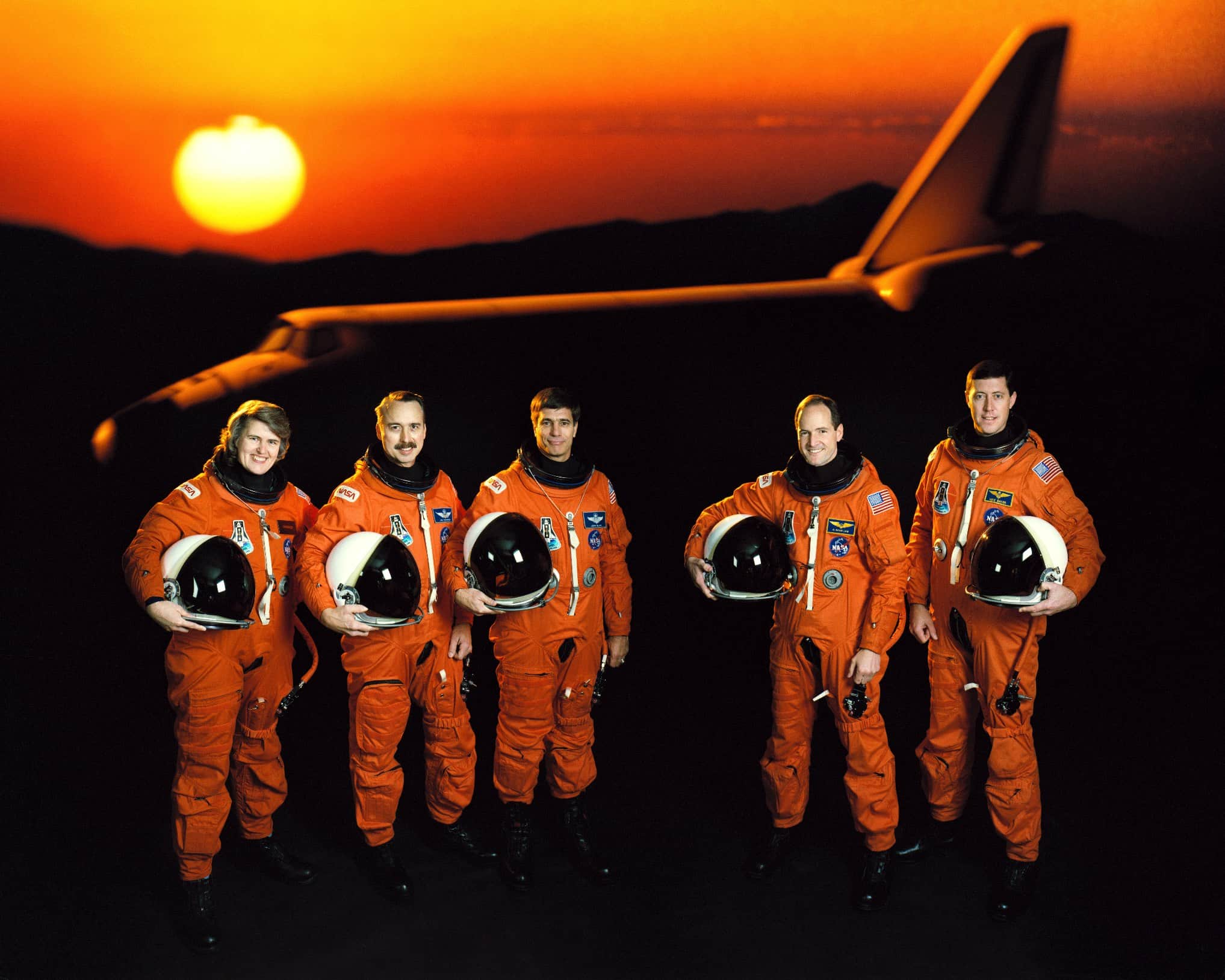
On April 9, 2007, the celebration of iPod sales milestone echoed throughout the tech world, as Apple proudly announced it had sold its 100 millionth iPod. This remarkable feat came just five and a half years after the iconic device hit the market, firmly establishing the iPod as Apple’s most beloved product before the rise of the iPhone. With the catchy promise of “1,000 songs in your pocket,” the original iPod changed the landscape of music consumption, providing a digital solution to replacing physical formats like CDs. Apple co-founder Steve Jobs acknowledged its impact in a statement, crediting the iPod with reigniting millions’ passion for music. The legacy of the iPod extends far beyond sales figures, having shaped Apple’s trajectory and left a cultural imprint that resonates to this day, a true testament to the innovative spirit behind Apple iPod legacy.
The commemoration of this iconic milestone in portable music devices reminds us of the significant evolution in music technology over the past two decades. Since its launch, the portable audio player became synonymous with the shift towards digital sound, revolutionizing how we listen to music. The history of iPod reflects a broader technological transformation that began with simple music players and exploded into a diverse ecosystem of devices and apps. Echoing Steve Jobs’ vision, these small gadgets laid the foundation for modern smartphones, making music access ubiquitous and personal. As we explore the impact of iPod on both consumer habits and Apple’s legacy, it’s clear that its influence still shapes our audio experiences even today.
The iPod Sales Milestone of 100 Million Units
On April 9, 2007, Apple reached a remarkable achievement in technology history when it sold its 100 millionth iPod. This milestone underscored the iPod’s status as Apple’s flagship product, showcasing the brand’s indelible impact on the music industry. Only five and a half years after the introduction of the original iPod, this moment was a testament to the product’s widespread acceptance and the profound changes it brought to how consumers experienced music. The statement by Apple CEO Steve Jobs celebrated this achievement, illustrating how the iPod reignited the global passion for music, aligning perfectly with the surge of digital downloads that made albums accessible in a way previously impossible.
The 100 million sales mark not only exemplified the innovative design of iPods but also highlighted their crucial role in defining Apple’s presence in the tech landscape. With models ranging from the classic iPod to the iPod shuffle, the diversity of the product line ensured that there was a device to cater to everyone’s needs. This monumental sales figure set the stage for Apple’s ascent, paving the way for future innovations, including the revolutionary iPhone that would change the world once more.
The significance of reaching the 100 million sales milestone cannot be understated. It signified more than just sales; it marked a cultural shift towards digital music consumption. The iPod’s ability to accommodate thousands of songs in a compact device effectively eliminated the dependency on physical media. By aligning this sales success with the concurrently growing iTunes platform, Apple assured a robust ecosystem of digital content, ensuring that music lovers could access and purchase songs directly. This symbiotic relationship between the iPod and iTunes was a groundbreaking model that redefined the music industry, establishing a standard for digital distribution that persists today.
Impact of the iPod on Apple’s Brand Legacy
The launch of the iPod in 2001 was pivotal for Apple, marking a transformative shift in the company’s trajectory. Initially positioned as a portable music player, the iPod evolved into a symbol of modernity and creativity, ultimately defining Apple’s brand identity. Steve Jobs’s vision of a digital hub was impeccably realized with the iPod as its centerpiece, integrating seamlessly with the Mac and later other Apple devices. This integration not only solidified customer loyalty but also positioned Apple as an innovator in a rapidly changing technological landscape and set the stage for the forthcoming launch of the iPhone in 2007.
The cultural resonance of the iPod also laid the foundation for achievements beyond sheer sales figures. The impact of the iPod extended to artist exposure, influencing how music was consumed and distributed, thus changing the entire landscape of the music industry. Musicians were now able to reach audiences directly through platforms like iTunes, leveraging the power of digital accessibility. As a result, the iPod significantly contributed to the digital audio revolution and formed an essential part of Apple’s legacy as a pioneer of personal technology.
The iPod not only shaped the future of music consumption but also emboldened a new generation of digital native consumers. Its user-friendly interface and sleek design created an aspirational product that appealed to diverse demographics, from tech enthusiasts to casual music lovers. The statement made by Jobs during the 100 millionth sale announcement resonated widely, affirming the iPod’s role in reinvigorating global music engagement and establishing powerful emotional connections between users and their favorite tracks.
Moreover, the iPod did not exist in a vacuum; it was part of a larger evolution within Apple that emphasized innovation and creativity. As the company thrived on the back of its iPod success, it developed an ecosystem where various devices and services complemented one another, ensuring a seamless user experience. This synergy between devices, such as the subsequent iPhone, iPad, and even the Apple Watch, can be traced back to the iPod’s groundbreaking influence.
The Historic Journey of the iPod: A Timeline
The history of the iPod can be traced back to its launch in October 2001, an era increasingly dominated by digital technology. The original model, with its revolutionary 5GB capacity, was an immediate success, offering consumers the enticing notion of carrying 1,000 songs in their pocket. This was a radical shift from the traditional means of enjoying music through CDs and cassette tapes, establishing a new norm for music consumption that triggered a wave of technological advancements. Each subsequent iteration—such as the iPod mini, nano, and shuffle—introduced innovative features, significantly contributing to Apple’s standing in the tech world by continuously engaging consumers with new offerings.
By 2007, Apple had significantly expanded its iPod range, culminating in the coveted milestone of selling the 100 millionth unit. This impressive sales feat highlighted the market dominance of the iPod and provided a springboard for Apple, allowing the company to experiment with new ideas and shape future innovations. The rise of digital music sales had a lasting impact that reshaped the broader music industry, presenting fresh opportunities for artists and record labels alike in an increasingly competitive environment.
The iPod’s timeline extends beyond its birth in 2001; by 2011, it was reported that Apple had sold around 300 million devices, showcasing a brisk growth trajectory that mirrored the global shift in music consumption habits. Through collaborations with the iTunes Music Store, Apple solidified its status as a major player in the digital music space, becoming the third-largest music retailer in the United States by 2007. This rapid ascent illustrates how a single product could redefine an industry and influence countless aspects of modern life.
Although Apple would eventually pivot towards mobile devices, the historical journey of the iPod serves as a reminder of how transformative innovation can drive a company to unprecedented heights. The impact created by the iPod remains palpable today; its legacy continues to influence how music is consumed, demonstrated by how Apple incorporated music-playing capabilities into its modern devices such as the iPhone and Apple Watch.
Remembering the Influence of Steve Jobs on iPod Success
Steve Jobs’s influence on the iPod’s success is undeniable, as he was the driving force behind the product’s creation and marketing. His visionary leadership and commitment to design excellence were pivotal in shaping the iPod into a cultural phenomenon. Jobs famously encapsulated the device’s unique selling proposition, promising consumers a world of music at their fingertips. This mantra resonated with millions, underpinning Apple’s marketing strategy and creating a strong emotional connection with potential buyers. His statement at the sales milestone further emphasized the iPod’s role in ‘igniting passions’ for music, which was central to its branding identity.
Moreover, Jobs understood that the iPod was more than just a music player—it was a lifestyle choice that offered freedom and portability. Under his guidance, Apple meticulously crafted the user experience, ensuring that each interaction felt seamless and intuitive. This attention to detail helped establish a fiercely loyal consumer base, setting the foundation for Apple’s dominance in the tech market.
In reflecting on Steve Jobs’s contributions to the iPod, it’s essential to acknowledge how his innovative thinking influenced not just a product, but an entire industry. The way the iPod seamlessly integrated with the iTunes platform showcased an understanding of consumer needs that transcended traditional ideas about technology. Jobs’s belief in creating a digital hub for music laid the groundwork for future technologies, such as the iPhone, more than merely serving as another successful product for Apple. The iPod became symbolic of Jobs’s broader legacy, representing the intersection of technology and culture, and the lasting impact he had on the global landscape.
Celebrities Celebrate the iPod Phenomenon
In honor of selling its 100 millionth iPod, Apple embraced the star power of celebrities from various fields to highlight the device’s cultural importance. Iconic figures like Mary J. Blige, in a press release from Apple, articulately expressed the profound connection individuals have developed with their iPods, showcasing it not just as a device, but as a personal extension. Her words echoed the sentiments of countless users who viewed the iPod as a means to express their identities and share their musical tastes with the world, reinforcing its status as a must-have accessory during that period.
Alongside Blige, sports legends, such as Lance Armstrong, lent their voices to this celebration, illustrating the iPod’s pervasive influence on everyday activities like running and exercising. This underscores the iPod’s versatility as it found a place in moments of leisure and productivity. By connecting renowned personalities with the iPod, Apple solidified its position in the lifestyle market, transforming it into an object of desire that encapsulated a dynamic and contemporary lifestyle.
Apple’s ingenious marketing strategy did not stop with celebrities’ endorsements; it included high-visibility advertisements to enhance consumer awareness. The full-page ad in The Wall Street Journal best exemplified their efforts, capturing the attention of millions and delineating the iPod as an essential component of modern living. This combination of celebrity endorsements and strategic advertising fostered a cultural milieu where the iPod became synonymous with style and modernity, influencing even non-Apple enthusiasts to take notice and consider adopting the device.
By harnessing the collective recognition of popular figures within the realms of music and sports, Apple seamlessly instilled the narrative of the iPod as a game-changing device while reinforcing its cultural relevance. Pushing boundaries with innovative marketing strategies ensured that the excitement surrounding the iPod continued to thrive even as Apple expanded its product lineup in subsequent years.
From 100 Million to Over 400 Million: The iPod’s Legacy
The journey from achieving 100 million iPods sold to an eventual total exceeding 400 million is a testament to the device’s lasting impact on the music and technology industries. After reaching that initial milestone in 2007, Apple continued to build on this momentum, releasing various models that catered to an expanding range of consumer preferences and needs. This diversity allowed the iPod ecosystem to flourish, giving rise to an entire range of accessories that enhanced user experience, thus bolstering Apple’s reputation as an innovator in the global marketplace.
Despite shifting consumer practices and the rise of streaming services, the iPod maintained its relevance, often serving as a nostalgic reminder of a time when digital music began to dominate. From the classic iPod to the sleek iPod touch, each model contributed to a cumulative legacy that shaped how music is enjoyed. The simplicity and aesthetic appeal of these devices have instilled a deep fondness in many users who grew up with the product.
In 2022, Apple made the significant decision to discontinue the iPod touch, marking the end of an era for a device that transformed the way we interact with music. This transition came as part of a broader shift in Apple’s product strategy, emphasizing integration across its ecosystem—offering access to over 90 million songs via Apple Music on devices like the iPhone and Apple Watch. As Apple stated in their farewell release, the essence of the iPod experience had now been absorbed into its other products, illustrating how the iPod fundamentally changed Apple’s trajectory for the better.
While the iPod’s production may have ceased, its legacy continues to thrive as it laid the groundwork for future digital innovations. The history of the iPod serves as a remarkable reminder of the power of technology to reshape consumer behavior and redefine industries. Every time music enthusiasts reach for their smartphones or other Apple devices, they experience an echo of the groundbreaking influence initially set into motion by the iPod, solidifying its enduring place in the annals of tech history.
The Evolution of Music Accessibility Since the iPod
Since the launch of the iPod, the accessibility of music has experienced a dramatic transformation. The advent of the digital music player not only altered consumer preferences but also catalyzed the shift from physical formats to digital files. The iPod was at the forefront of this revolution, making music accessible anywhere, anytime, fundamentally changing how people consumed content. As a result, the role of traditional music distribution channels has diminished significantly, with platforms like the iTunes Music Store leading the charge towards a digital-first model that democratizes music access for listeners around the world.
Moreover, the success of the iPod paved the way for subsequent innovations, such as streaming services like Spotify and Apple Music, which further enhanced music availability. The emphasis is now on convenience, with limitless libraries of songs available with just a few taps on a screen. This transition has fostered appreciation for both mainstream and independent artists, as listeners are empowered to explore a vast array of genres and sounds previously unavailable through conventional means.
The evolution towards accessibility is also reflected in the way consumers are now accustomed to personalized music experiences. With the integration of AI and machine learning technology in platforms today, music recommendations are tailored to individual tastes based on listening habits. The iPod’s original vision of making music portable and personal has transcended its physical limitations, now embodied in apps and online services that enable shared playlists and social listening experiences.
While the landscape has changed drastically since the iPod, its legacy endures. By breaking down barriers to music consumption, the iPod created an environment where music thrives and remains a constant source of inspiration and joy for billions. Whether through an iPhone or a streaming service, the revolutionary spirit of the iPod lives on, continuously shaping the future of music consumption and accessibility.
Frequently Asked Questions
What significance does the milestone of 100 million iPods sold hold for Apple?
The milestone of 100 million iPods sold on April 9, 2007, marks a pivotal point in Apple’s history, demonstrating the iPod’s status as the company’s most successful product prior to the iPhone’s launch. This feat validated the iPod’s role in reshaping digital music consumption and solidified Apple’s position in the tech industry.
How did the impact of the iPod influence Apple’s evolution into a tech giant?
The impact of the iPod was transformative for Apple, as it not only rejuvenated the company following its near bankruptcy but also laid the groundwork for future innovations like the iPhone. The iPod’s success, particularly through its integration with iTunes, showcased Apple’s capability to combine hardware and software, driving massive sales that propelled the company’s growth.
Can you summarize the history of the iPod leading up to the 100 million sold milestone?
The history of the iPod began in 2001 with its first release, offering ‘1,000 songs in your pocket’ with a 5GB hard drive. By the time of reaching the 100 million milestone in 2007, Apple had launched multiple models, each catering to different music needs and solidifying the iPod’s legacy as a cultural icon and the cornerstone of digital music.
What was Steve Jobs’ statement regarding the iPod sales milestone?
Steve Jobs celebrated the 100 million iPods sold milestone by expressing gratitude to music lovers worldwide for their support. He emphasized the iPod’s role in reigniting people’s passion for music, underscoring its significance not just as a device, but as an influential part of their lives.
How did celebrities react to the milestone of 100 million iPods sold?
In recognition of the 100 million iPods sold milestone, numerous celebrities, including singer Mary J. Blige and cyclist Lance Armstrong, praised the iPod’s impact on their lives. They described it as more than just a music player, highlighting its role in personal expression and motivation.
What was the trajectory of iPod sales following the 100 million milestone?
After achieving the 100 million iPods sold milestone, Apple’s sales surged to 300 million by 2011. The iPod’s sales figures continued to grow, eventually surpassing 400 million, until Apple discontinued the product line in 2022, marking the end of an era for the beloved music player.
Why is the iPod regarded as an important part of Apple’s legacy?
The iPod is regarded as a crucial part of Apple’s legacy because it revolutionized how people accessed and consumed music, paving the way for future innovations in mobile technology. Its success not only transformed Apple’s business model but also fundamentally changed the music industry, leaving a lasting impact on both culture and technology.
| Date | Milestone | Significance | Quotes from Celebrities | Legacy |
|---|---|---|---|---|
| April 9, 2007 | 100 million iPods sold | Confirms iPod as Apple’s most popular product at the time. | Mary J. Blige: “The iPod is more than just a music player; it’s an extension of your personality.” | Led to Apple’s dominance in the tech world and set the stage for future products. |
Summary
The iPod sales milestone of 100 million units sold marked a pivotal moment in Apple’s history. Achieved on April 9, 2007, this accomplishment not only established the iPod as the company’s most successful product at that time, but it also highlighted the significant cultural transition from physical music to digital audio. The impact of the iPod reverberated throughout the music industry and solidified Apple’s position as a leader in technology innovation, influencing future devices like the iPhone and the Apple ecosystem as a whole.
You may also like

iOS App Store Success: A Milestone in Digital Distribution


First Email from Space: The Macintosh Portable’s Legacy
Archives
Calendar
| M | T | W | T | F | S | S |
|---|---|---|---|---|---|---|
| 1 | 2 | 3 | 4 | 5 | ||
| 6 | 7 | 8 | 9 | 10 | 11 | 12 |
| 13 | 14 | 15 | 16 | 17 | 18 | 19 |
| 20 | 21 | 22 | 23 | 24 | 25 | 26 |
| 27 | 28 | 29 | 30 | 31 | ||